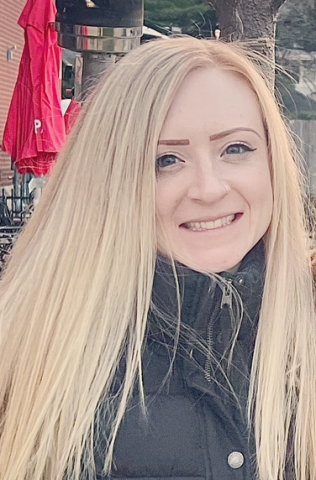
PAU Alumna Dr. Sara Lorkiewicz: Pioneering Neuropsychology Research and Career Path

For many Palo Alto University (PAU) students and alumni, a career in the mental health field isn’t always a straight line. Sara Lorkiewicz, PhD ’22 initially pictured her interest in science would lead to a career working in a wet lab. After double majoring in molecular biology and psychology as an undergraduate, Dr. Lorkiewicz realized she also had an interest in clinical work. These, and other, experiences brought her to PAU’s neuropsychology program where she studied under the advisement of Dr. Tilman Schulte. This was the perfect choice to enable her to become a scientist practitioner.
Sara has always had an interest for studying neuropsychology in people with HIV, who have neurodegenerative conditions, and those engaging in substance use. Her dissertation work at PAU showed cognitive changes in individuals with alcohol-related blackouts, including impaired visual learning and facial recognition. Building on this topic during her postdoctoral work at the Michael E. DeBakey Veterans Affairs Medical Center in Houston Dr. Lorkiewicz published, “A longitudinal study of the relationship between alcohol-related blackouts and attenuated structural brain development” in Developmental Cognitive Neuroscience. Her research evidences structural brain changes related to blackouts from alcohol use, in addition to cognitive changes. She was then interviewed about her team’s findings in Newsweek in an article titled, “Alcohol Blackouts May Permanently Alter Your Brain, Scientists Warn”
After completing her time in Houston, Sara recently moved back to California to accept a position as a Postdoctoral Scholar in the Poston Lab at Stanford Medicine. Here, she plans to explore biomarkers that are indicative of neurodegeneration, and also plans to continue her research into neurodegeneration related to aging, and for people with HIV. Asked about what advice she might give to someone embarking on a similar career path, Dr. Lorkiewicz shared that it’s important for graduates to fully understand the requirements for their career. Hers requires a two-year fellowship upon PhD completion, which of course takes more time. She is happy to have found a career that she loves, and looks forward to conducting more impactful research.
